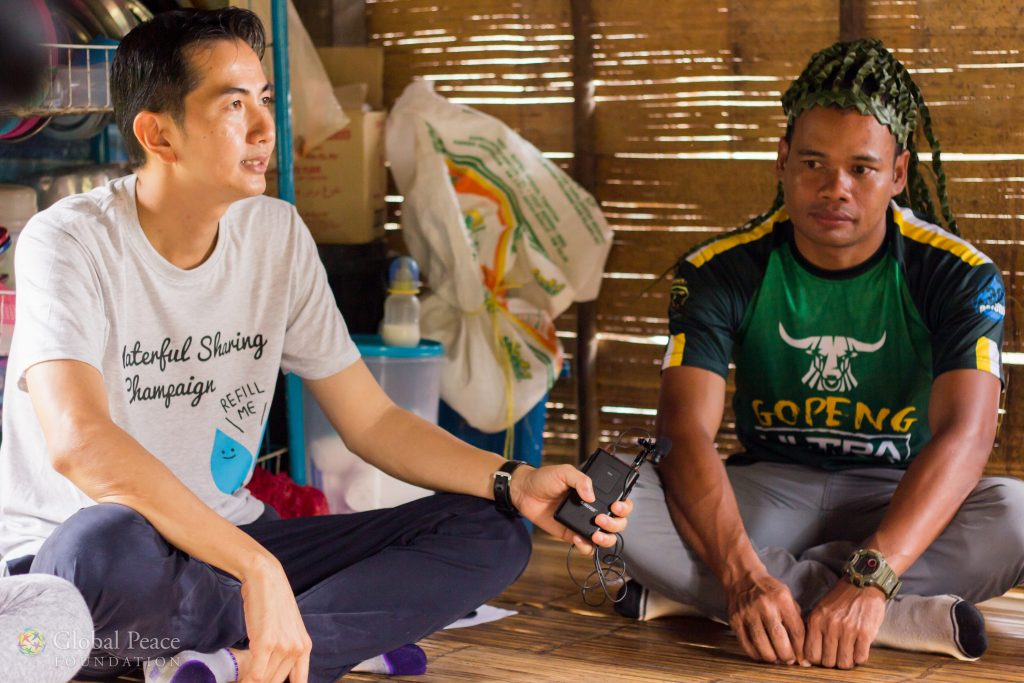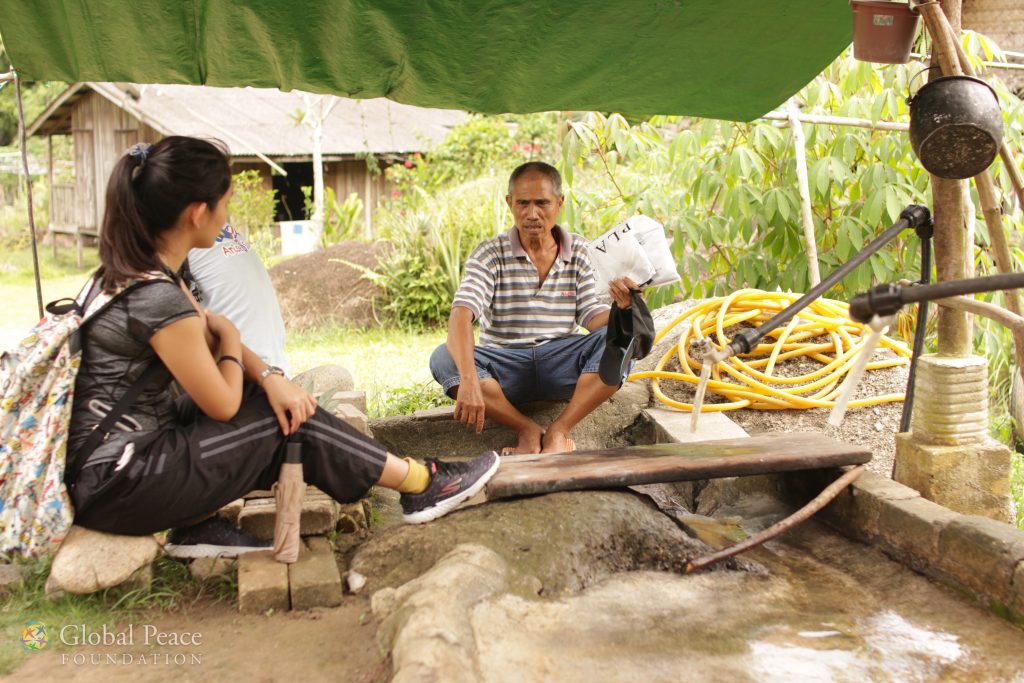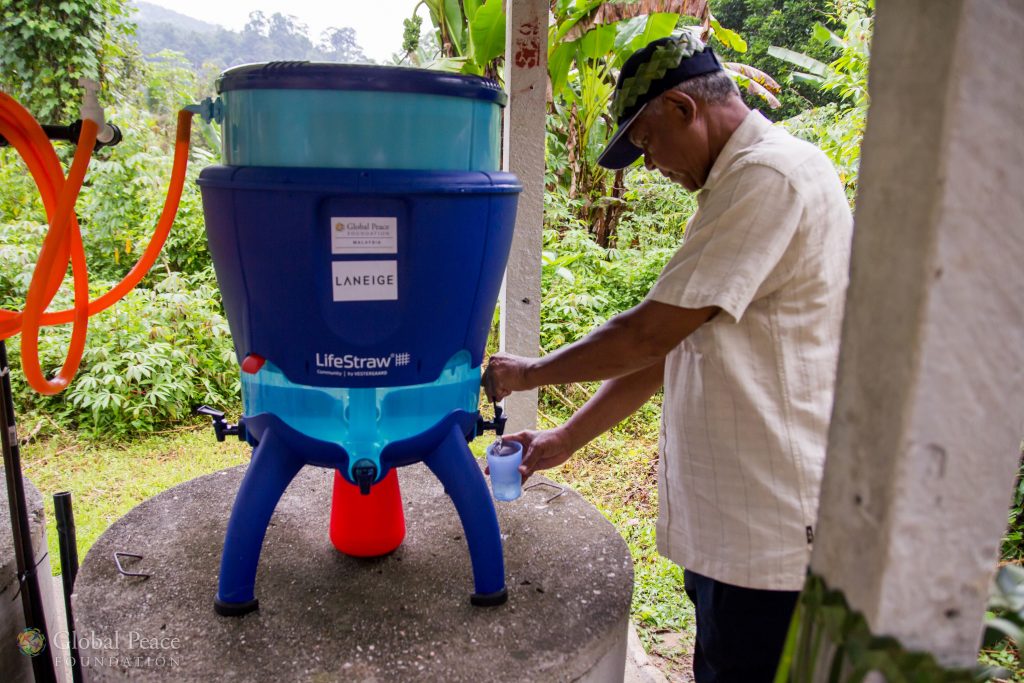“We have a house in the city but I said I don’t want.” Wah Rina, a resident of Kampung Ulu Geroh, told us. This is something that most of the villagers of Kampung Ulu Geroh share, their preference to stay near their village homes over the cities.
Almost an hour drive away from the nearest town, Gopeng in Perak, Kampung Ulu Geroh is a village of tranquillity and simplicity. Their houses are mostly made from wood, bamboos, and Nipa palm leaves. Young children would run around bare feet from house to house to play. As we were driving to the village, we saw men riding motorbikes down to the town, with a basket full of durian, ready to be sold in the town. When we arrived at the village, we noticed that the women gathered in the morning to prepare for lunch together. Such is the daily life of the villagers in Kampung Ulu Geroh.

Women of Kampung Ulu Geroh washing dishes after cooking together in the morning.
However, behind such peace and contentment, the villagers have long struggled with their lacking in access to clean water. Bah Insan, who runs a tourism business for his village, explained to us that long ago, they used to use bamboos as pipes to feed water to their homes, straight from the water source. However, that was 60 years ago when their ancestors used to live in the mountains, much nearer to the original water sources. Between 1977 and 1978, the Malaysian government ordered all of the villagers to move to a designated area, which is the current Kampung Ulu Geroh. The villagers now rely on gravity-fed water which flows through pipes directly to their houses. With no means of filtration in their pipes, they had to make use of whatever they could get their hands on, to filter their water, which was a simple cloth filter coffee shops used as coffee filters.

Dr. Teh (left) and Bah Insan (right) talking about the water situation in Kampung Ulu Geroh.
Bah Sadi, a villager of Kampung Ulu Geroh, also explained, “Before we had gravity fed water, we had to collect water from small streams. After we got gravity fed water, it was slightly easier, but the water quality was still horrible. Whenever it rains, it becomes undrinkable”. This became especially true since logging became common. Their water will be filled with mud and sediments whenever it rains and turns as brown as Milo. “Before it rains, when we notice the weather, we will start storing drinking water for one whole day”, Bah Sadi described. Averagely, they need to wait for 3 to 5 hours after the rain for their water source to start clearing up.

Bah Sadi (right) describing their struggles for clean water to one of our staff (left).
Kampung Ulu Geroh was Global Peace Foundation’s recent beneficiary of our clean water project called Communities Unite for Purewater (CUP). In collaboration with Laneige Malaysia, a Korean cosmetic company, we gave 25 units of portable water filters, which have a 50 liters tank storage, to Kampung Ulu Geroh.
As Bah Insan described, “Before, we always had to boil the water first, but now I see the children taking water from the filter in the morning and leaving straight for school. So convenient.” Bah Sadi also said “We don’t need to think so hard about clean water anymore. Rain or not, we no longer worry. We do not need to store water, the water is already stored in the filter. That is the best part”.

Bah Chong taking water from the community filter.
Bah Sadi expressed his gratitude sincerely to Laneige Malaysia and Global Peace Foundation Malaysia: “I thank the sponsor, Laneige and Global Peace, for generously helping the residents of this village, and providing the water filters. We can finally live healthily in terms of water every day. We don’t need to worry about any sickness anymore.”







